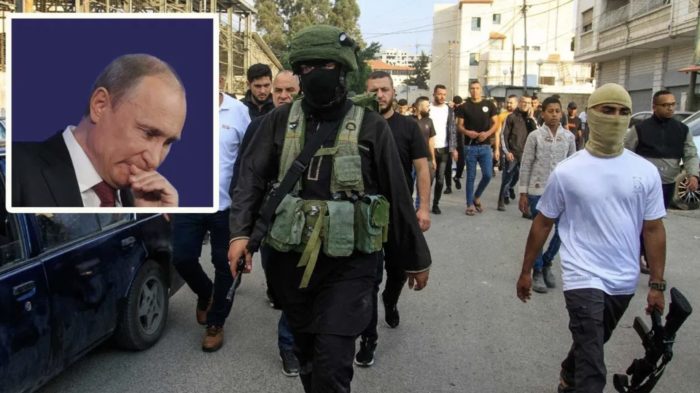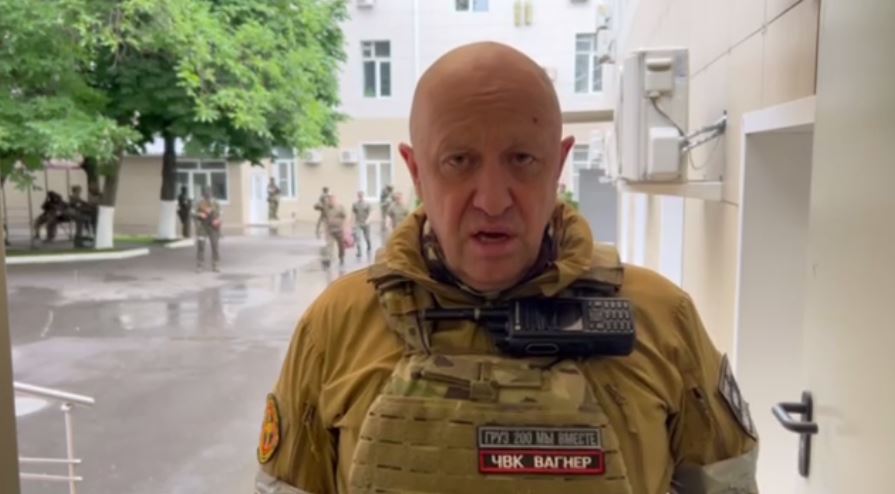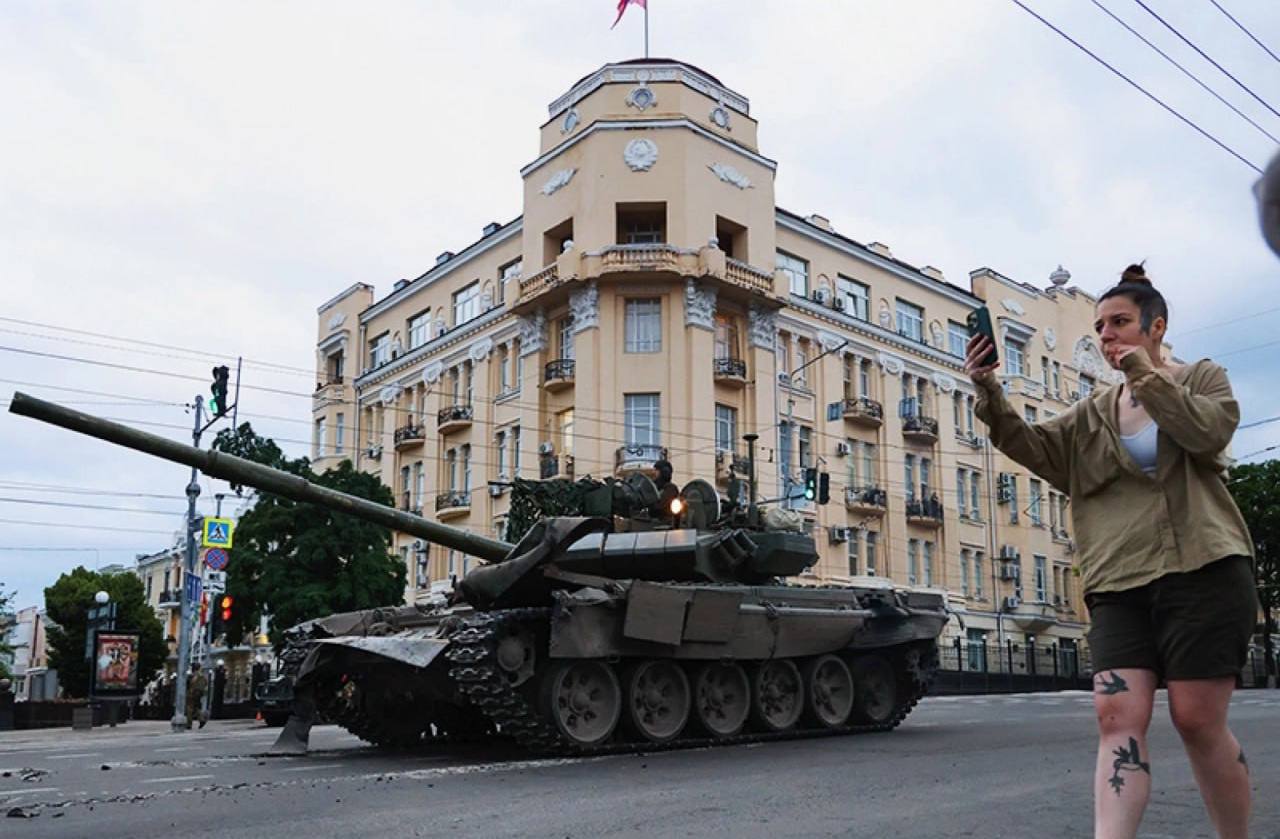The Kremlin's response to the recent armed rebellion led by Yevgeniy Prigozhin reveals alarming vulnerabilities within Russia's power structures, says the Institute for the Study of War (ISW). Prigozhin's rapid advancement toward Moscow revealed significant shortcomings in the Kremlin's ability to quickly mobilize against an internal threat, as well as glaring inefficiencies in the Russian Ministry of Defense (MoD).
As ISW reports, this revolt, which exposed an erosion in Putin's monopoly on force, has not only undermined the Russian security apparatus but also demonstrated that independent military forces can achieve notable results, even against Russia's regular forces. As a result, key figures within Russia's government and state-owned enterprises have been left to ponder the power dynamics between the central state and private military forces. This event has put a spotlight on the fragility of Russia's military reserves, which are heavily committed to the ongoing war in Ukraine.
Despite being caught off guard by the rebellion, Kremlin showed no resistance to Prigozhin's forces in Rostov-on-Don, a development that has raised questions about the effectiveness of Russia's domestic intelligence service, the FSB. The fact that Prigozhin had consistently escalated his rhetoric against the Russian Ministry of Defense before the armed rebellion and Putin's failure to mitigate this risk paints a bleak picture of the state's internal security mechanisms.
The ISW report further points out that while the Kremlin struggled to mount a swift response to Prigozhin's advances, Russian authorities mobilized the Russian National Guard and other special units to counter the rebellion. Despite their activation, these forces failed to engage with Prigozhin's forces, even as they captured key military assets.
In a similar vein, the report highlights that the rebellion has shown the deficiency of Russian forces in many rear areas, and it will almost certainly affect the morale of Russian personnel in Ukraine, potentially influencing the Ukrainian forces' strategy against Russian defenses.
In response to Prigozhin's rebellion, Putin decided to back the Russian Ministry of Defense, underlining his ongoing efforts to centralize control of Russian irregular forces, including Wagner, over Prigozhin. However, the Lukashenka-brokered agreement will likely result in the dissolution of the Wagner Group as an independent entity led by Prigozhin. The agreement, which strips Prigozhin of his control over the Wagner Group, may lead to the integration of some part of the Wagner Group under the Russian Ministry of Defense.
In the aftermath of the rebellion, Prigozhin's support base within the ultranationalist community, the Russian government, and elements of the Wagner Group itself, have likely been further eroded. Furthermore, the direct involvement of Belarusian President Lukashenka in halting the military advance on Moscow is considered humiliating for Putin and might have granted Lukashenka some unforeseen benefits.
ISW states that it would refrain from speculating on the concrete impacts of Prigozhin's rebellion and the Kremlin's weak response, but it does hint at the potential for substantial damage to Putin's government and the Russian war effort in Ukraine.
Related:
- Frontline report: Russia suffers record aircraft losses during Wagner mutiny
- Wagner founder to leave for Belarus as Russia promises to drop criminal charges
- Prigozhin stops Wagner forces 200 km away from Moscow, says they return to field camps
- Moscow braces as Wagner PMC approaches Russian capital
- Prigozhin views Wagner coup as existential survival effort – ISW
- Pro-Ukraine Russian units supported Prigozhin’s coup in Russia
- Frontline report: Prigozhin claims Russia started war to rob Ukraine, launches violent coup
- Wagner coup prepares to seize nuclear weapons depots – partisan movement
- Wagner coup was months in the making, Russia’s loss of nuclear control possible – Gulagu.net
- Putin tried to negotiate with Prigozhin, unsuccessfully – Russian media
- Defiant Prigozhin refuses to lay down arms, lambasts “corruption” that plagues Russia’s imperial conquests
- Wagner column moves towards Moscow, bypassing Voronezh – Vyorstka
- “A stab in the back to our country”: Putin implores on soldiers to defy Prigozhin’s orders, vows to stop “armed rebellion”
- Prigozhin claims control over Rostov amid “march for justice”
- FSB launches criminal case against Wagner chief as Russia’s top brass implore mercenaries not to rebel
- Wagner chief announces “march for justice” after alleged Russian strike on mercenary troops (UPDATES)




